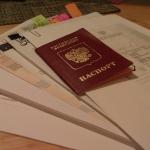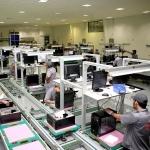Channels
Resources
Events Venues
SEARCH INFO
There are 201 results for "customs clearance" on The Brazil Business.
BEST MATCHES

Dear Sir/Madame,we exporting plastic products from Romania in all countries,and we need to know what taxes must to pay for import in Brazil.
Our products are the folowing custom code:39269090(plastic sheets and rolls),and 87089990(plastic flaps with logo for automotive).
Please,send me all the taxes which we must to pay in Brazil.
From my knowledge the tax for our products are:
**For 39269090:**
* Custom duties:18%
* IPI:15%
* ICMS:18%
* PIS:1.65%
* Cofins:7.6%
**For 87089990**
* Custom Duties:18%
* IPI:5%
* ICMS:18%
* PIS:1.65%
* Cofins:7.6%
Please confirm/infirm if is ok.Thanks in advance for your support.
Cristian Milea
Europe Logistic Manager

A considerable amount of the imported products circulating in the Brazilian market entered the country illegally. In this article, we will outline the most common practices regarding illegal imports that happen in Brazil.

We are a U.S.-based corporation which is looking at producing a small conference and exhibition in Sao Paulo, Brazil this coming November. We do not have offices or any legal entity in Brazil. I wanted to find out whether we will need to charge any sort of tax (VAT or otherwise) on attendee conference registration fees and/or exhibitor booth (stand) fees or vendor sponsorship fees. Do we need to register for a Brazilian tax ID number? Thank you, Kim

Brazil has attracted foreign investment over the last 10 years, but some barriers are still hard to overcome and directly affect the “doing business” part. These are the most common problems that businesses face in Brazil. Make sure you come prepared!

We already wrote several articles about sales taxes in Brazil, but discussing each tax separately. In this article, we have made a summary of all the taxes levied on sales activities in the country.

IBGE is one of the most prestigious Brazilian institutes, responsible for providing data regarding geosciences and social, demographic and economic statistics. It is the major national institute in terms of providing information about Brazil.

In order to have legal validity in Brazil, some documents may need to pass through a process of authentication in a Brazilian consulate abroad. In this article, you will get some general information about this process, when and where to do it, and in what cases foreigners are usually required to legalize documents issued abroad

The problems in the Brazilian logistic system represent a big obstacle to the country's economic growth. In this article we will explain those issues, and give an overview of the Brazilian transport network.

The general rule that orients the import of used goods in Brazil is very simple. One cannot import used goods that are produced in the country. Based on this principle, there are some exceptions that you will be informed in this article.

Getting an environmental license is a mandatory procedure for companies whose operations can cause damages to the country's environment. In this article, you will know the steps of licensing, the responsible institutions, and the penalties for companies that start its operations in Brazil before obtaining proper authorization.

There is currently a lot of discussions about getting an unified ICMS interestate rate to end the tax war between states in Brazil. The federal government is proposing a sole tax rate of 4% for all the Brazilian states. Will it be better for the country's growth?

The process of importing to and exporting from Brazil has two main allies: bonded warehouses and certified bonded warehouses. Learn in this article what are the main differences between the two storage modalities and the advantages of each.

Colonized by a catholic country, Brazilians have recently been open to different religions, what has led to a constant migration among beliefs and practices. Learn in this article what are the major religions in Brazil.

In order to stimulate the economy, the Brazilian government has created some initiatives that would enhance exports. One of these initiatives is the drawback regime. In this article, we will explain what is the regime and its major modalities.

Protectionist measures are no news in Brazil as the country has created initiatives to enhance the national industry. However, in some cases there are no options but importing certain products that are not produced in Brazil. Ex-tarifário was created to encourage but also regulate this type of importing scheme.